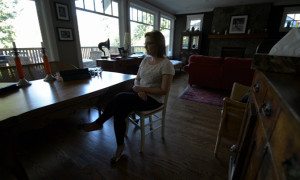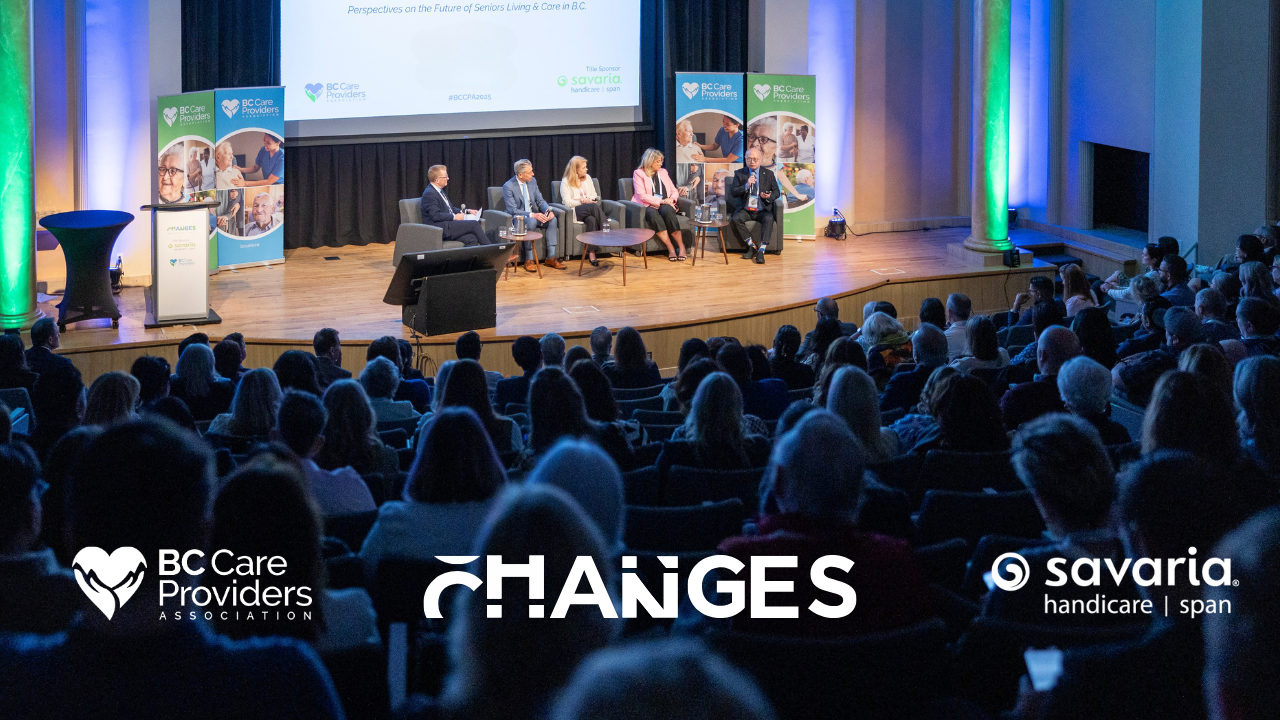Global National anchor, Dawna Friesen, opens up about her family and its battle with dementia in a special presentation for 16×9. Scroll down for Friesen’s touching story. A story that many individuals with elderly parents can relate to. For more information visit Global News.
+++
‘Dementia will affect you’: Dawna Friesen shares her family’s struggle
To be the child of parents who are alive but no longer present is bit like being in state of suspended animation.
There is no more communication, no more sharing memories, no more laughter.
Their physical being still exists, but the person they were has vanished.
That’s what dementia does. And as the daughter of parents who are caught in this, I decided rather than be muzzled by my sadness I would speak out.
I didn’t used to know much about dementia.
I thought it was just a sad fact of the aging process that some people lost their marbles. But it’s not a normal part of aging.
Dementia and Alzheimer’s is a disease that alters the structure of the brain, destroying brain cells and in the process, reducing vital, active, healthy people to a shadow of their former selves.
We shouldn’t just accept it. We should put up a fight, and work to find a cure.
You may read this and think ‘this doesn’t affect me.’ Maybe not yet. But the way this disease is spreading, it will.
Dementia will affect you. Your mother or father will get it, or your uncle, your aunt, your brother or sister. Maybe you will get it.
Someone in Canada is diagnosed about every five minutes. And if dementia were a country, more than 44 million people would live in it.
That number is expected to double every 20 years. And here’s a sobering thought: about 15 per cent of people with dementia are under age 65.
It’s easier not to think about this since it’s certainly not an uplifting subject.
I admit there are times I sometimes dread going to visit my parents now.
Both live in a long term care facility and physically they are doing reasonably well.
A lifetime working hard on the farm and eating homegrown food has kept their bodies relatively strong.
But Dad no longer recognizes me, cannot communicate, and can no longer see.
When I kiss him on the cheek and say hi, I can’t even tell if he knows I am there.
Mom has declined rapidly in the last three years, but still recognizes me. Just the woman who loved to travel and was so interested in politics and the world now spends much of her time gazing off into the middle distance.
No longer interested in reading or watching TV, she just exists, answering simple questions with monosyllabic answers.
She’s forgotten how to dial the phone, forgotten her friends, forgotten how to properly dress herself.
My mom used to dote on my son. He was the apple of her eye, and she loved to cuddle him and read stories to him.
But as she’s slipped into dementia, he can’t connect with her anymore and finds it all a bit scary and sad to visit her. So I don’t bring him anymore.
I want his memories of her to be positive ones.

It is heartbreaking. My parents can no longer take part in their grandchildren’s lives, they can’t share family memories or fill in the gaps in the family history.
It shouldn’t be this way. And, we shouldn’t sit by and let another generation sink into the same sad cycle.
We need to find a cure, and we need to figure out a better way to care for our loved ones with dementia.
Right now there is a patchwork of standards across the country. Most care homes don’t have the funding, the training or the staff to deal with what the people they have now, never mind the wave that it coming.
Families – usually women – carry the bulk of the burden, often caring for young children and elderly parents at the same time.
Trying to find help can be bewildering. Trying to figure out whether to move them to a care facility, how to find one, whether it’s a good one, how you’ll pay for becomes almost a full time job.
We as a country are woefully unprepared for what’s happening to our aging population. Nursing homes filled with dementia patients remind me madhouses from the eighteenth century.
They were built to house and control the insane, but offered no treatment or cures. Today, nursing homes are filled with people with Alzheimer’s and dementia and we have no treatment or cure to offer them.
Don’t get me wrong. Without the kindness, caring and patience of the staff at the home where my parents are, I don’t know how we would cope.
They do everything they can. But we owe our parents and ourselves so much more.
I miss my mom’s phone calls. I miss being able to take my son out to my parents farm to visit them, and watch him run around in the sunshine.
I find myself grieving for parents who are still alive. We need to get to the point where a diagnosis of dementia doesn’t mean inevitable exile to distant, unreachable place.
We need to find ways to prevent, cure, or at least slow the progression of the disease.
Talking about it, sharing stories, and pushing for more research is a small start.





